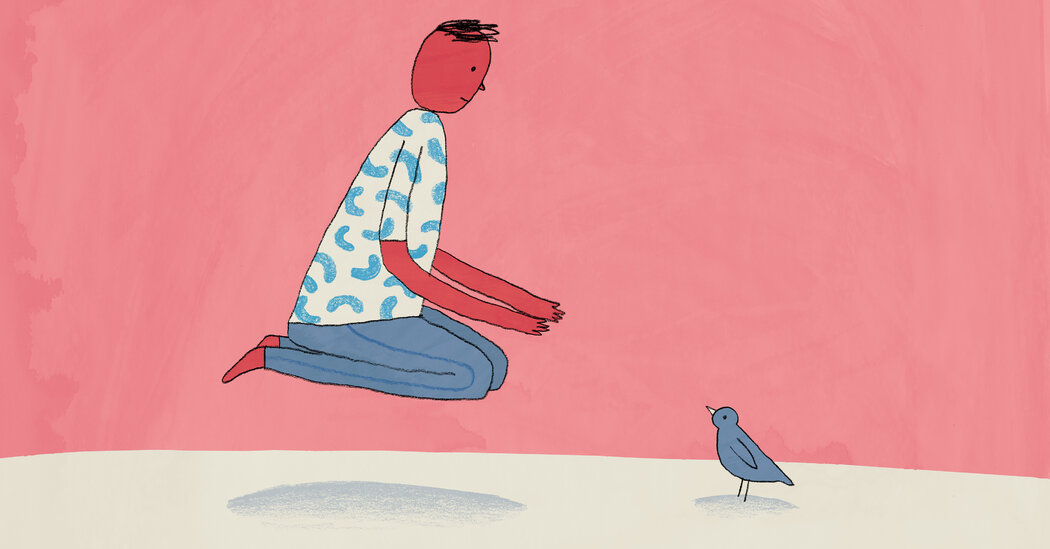
“Breathe,” he says. “Just focus on the breath.” The instructor’s voice is pleasant, slightly gravelly, like waves rolling over pebbles. Even with my eyes closed, I know he’s grinning, enjoying the meditation class more than I am.
“Yes, that’s it, in and out,” he says. “Only the breath. Nothing else to worry about.”
It sounds easy enough, but the problem is that for the last few years I have been in an almost constant state of anxiety, and where I feel it most is in my chest, in my inability to breathe properly. So to focus on my breath means to focus on my illness.
The instructor keeps repeating that awful word — breathe. “How can I breathe,” I want to scream, “when my heart is broken?” I’m usually not prone to maudlin proclamations, but such is the prerogative of the brokenhearted.
“What’s the matter?” the instructor asks.
When I open my eyes, he’s standing right in front of me, an imposing figure, six feet tall, in flowing white garments and matching hair. I’m afraid he’s going to tell me what he often tells the class: that this practice, if we let it, can be an act of self-love. At this point, I stop breathing completely. Mr. Flowing White has the audacity to pout, and as he reaches to place his hand on my chest, I pull away. I get up and leave the room.
What I find peculiar about being both anxious and heartbroken is their volatility when combined, how easily they can flare into anger. Outside the meditation center, I want to throw a rock through the frosted window that looks as icy as a Christmas cookie. But driving home I feel ashamed. I start to cry.
My broken heart is possibly like yours. This part of the story is common enough, especially lately. In the last several years, four of my friends have died, two from Covid. My social circle has never been large — up until recently it included perhaps 12 people — so the loss of a third of them has been profound.






